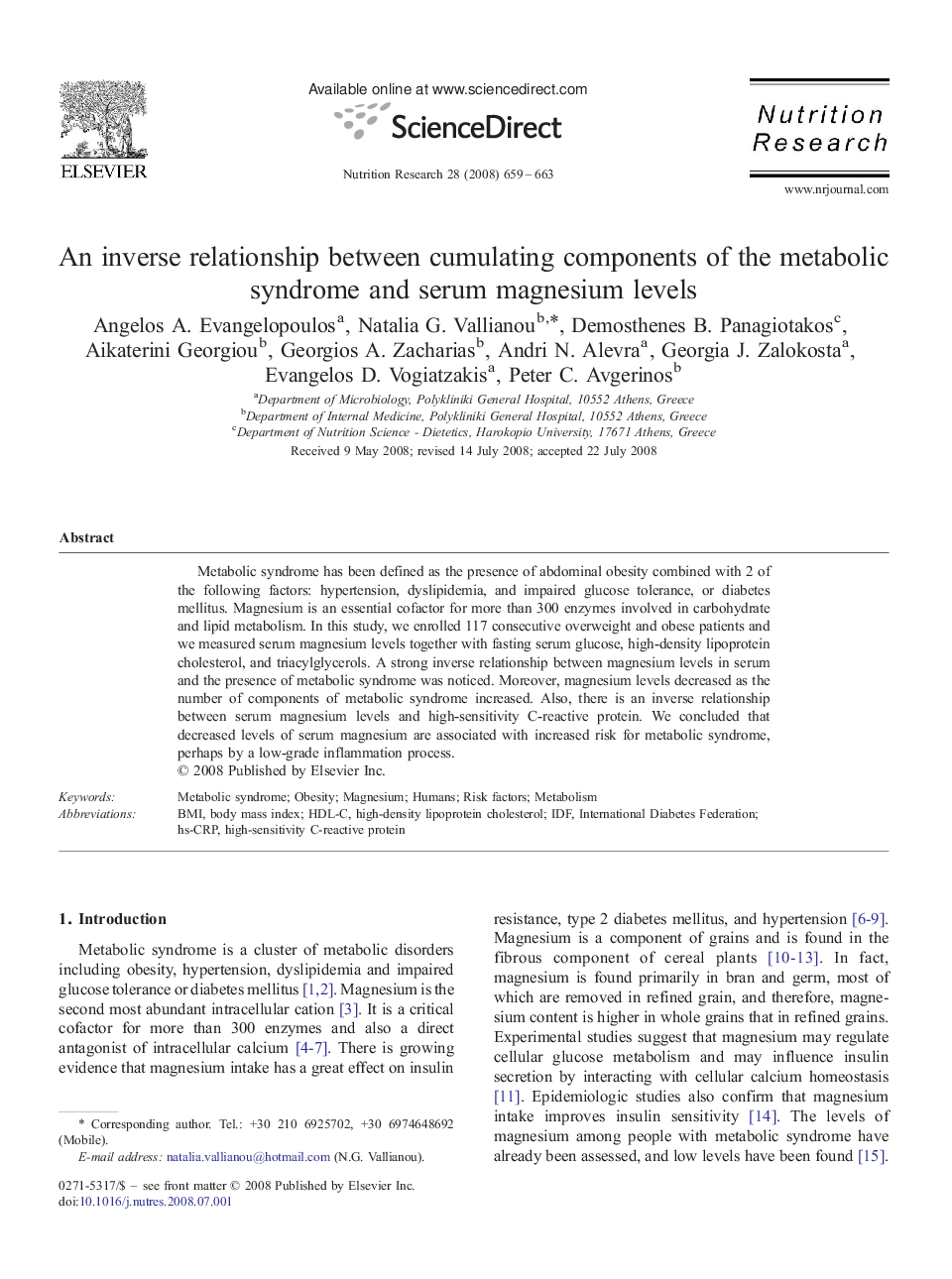| Article ID | Journal | Published Year | Pages | File Type |
|---|---|---|---|---|
| 2809609 | Nutrition Research | 2008 | 5 Pages |
Metabolic syndrome has been defined as the presence of abdominal obesity combined with 2 of the following factors: hypertension, dyslipidemia, and impaired glucose tolerance, or diabetes mellitus. Magnesium is an essential cofactor for more than 300 enzymes involved in carbohydrate and lipid metabolism. In this study, we enrolled 117 consecutive overweight and obese patients and we measured serum magnesium levels together with fasting serum glucose, high-density lipoprotein cholesterol, and triacylglycerols. A strong inverse relationship between magnesium levels in serum and the presence of metabolic syndrome was noticed. Moreover, magnesium levels decreased as the number of components of metabolic syndrome increased. Also, there is an inverse relationship between serum magnesium levels and high-sensitivity C-reactive protein. We concluded that decreased levels of serum magnesium are associated with increased risk for metabolic syndrome, perhaps by a low-grade inflammation process.
